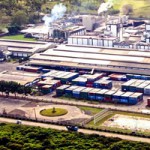Author Archive: Siam Legal International
Siam Legal is an international law firm with experienced lawyers, attorneys, and solicitors both in Thailand law and international law. This Thailand law firm offers comprehensive legal services in Thailand to both local and foreign clients for Litigation such as civil & criminal cases, labor disputes, commercial cases, divorce, adoption, extradition, fraud, and drug cases. Other legal expertise of the law firm varied in cases involving corporate law such as company registration & Thailand BOI, family law, property law, and private investigation.
ASEAN Comprehensive Investment Agreement
On 26 February 2009, the economic ministers of the ten ASEAN member States signed the ASEAN Comprehensive Investment Agreement (the “ACIA”), which liberalized trade within ASEAN in the following fields: Agriculture Fishery Forestry Mining Manufacturing Pursuant to the terms of the ACIA, ASEAN nationals are able to operate foreign majority-owned firms in Thailand by […]
Company Liquidation: Closing a Thai Limited Company
In the previous articles, we addressed the legal bases provided by the Civil and Commercial Code, passing a special resolution, and actual procedure for registering the dissolution of a Thai company. In this last series about closing a Thai Limited Company, we will explain the last stage in the process, which is company liquidation. Liquidation […]
Closing a Thai Limited Company: Special Resolution and Actual Procedure
In the previous article, we addressed the legal bases provided by the Civil and Commercial Code for dissolving a Thai Limited company. In this article, we will turn our attention to the most common basis, which is dissolving a Thai company through passing a special resolution as well as discuss the actual procedure for registering […]
Closing a Thai Limited Company
The closing of a Thai limited company is a very involved procedure that requires assistance from both a lawyer and an accountant. Furthermore, if a company has accumulated much debt during the course of its business operations, it may take a while before the company can settle its affairs and come to a close. Basically, […]
Setting Up a Factory in Thailand
In the previous post we discussed the different possible locations where one could establish a factory in Thailand. In this post, we will address the law with regards to setting up a factory, once one has already found the location. In Thailand, the main law that addresses the establishment of factories is the Factory Act […]
Where to Build a Factory in Thailand?
Foreign investors who are looking to construct a factory in Thailand should be aware of the different possible locations in which a factory can be built. There are primarily three possible locations, in order of suitability: Industrial Estates Industrial-zoned land outside of industrial estates (“Purple zone”) Non-industrial zoned land (“Green Zone”) Out of those three […]
Opening a Thai Corporate Bank Account
Opening a corporate bank account is a key priority for foreign investors who are doing business in Thailand. Different Thai banks, and even different branches within the same bank, tend to vary in their strictness and the requirements necessary for a company to open a bank account; here we will describe the generalities common among […]



















